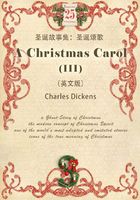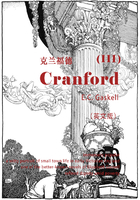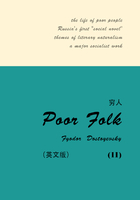Mosca was almost certain that setting fire to the mill had not been part of her plan when she had decided to rescue Clent. She had escaped from the locked mill through the hole in its roof with the ease of long practice. The malthouse wall, however, had presented more of an obstacle. She had known she would need Saracen to frighten off Brackle and Grabspite on the Whitewater plain, but the wall was too high to climb with a goose under one arm. It had made perfect sense to grab armfuls from the gorse stacks which the village used as fuel, and pile them against the wall. And when she had clambered up to the top of the wall, ignoring the sweet smell of dying summer and the stems which prickled against her face, it had made sense to light an oil lamp.
She did not remember deciding to drop the lamp, but nor did she remember it exactly slipping from her grasp. What she did remember was watching it fall away from her hand, and bounce so softly from one stack to another that it seemed impossible that it should break. She remembered seeing the wrecked lamp sketch a faint letter in white smoke shortly before the dry stems around it started to blacken and a hesitant flame wavered first blue, then gold ... and she remembered a rushing thrill of terror as she realized that there was no going back to her old life.
Now, as Mosca and Clent fled Chough, the wind followed them like a helpful stranger, offering them the smell of smoke from the burning mill as if it thought it might belong to them.
At four o'clock the feverish wind sighed and settled. Mosca had always enjoyed clambering the cliff paths at this hour, watching the frogs bulging on their rocky pulpits while the trees lost their roots among the early-morning mist. When their path crossed the track down to Hummel, she halted nervously, but it was too early for any of Hummel's red-scarfed women to be hefting sacks of grain to Chough's mills.
"I suppose there is a good reason why you have paused to take in nature's marvels? Perhaps your goose has entreated a moment to lay an egg for our breakfast?" For one of such portly build, Clent had kept a fast pace along the treacherous path.
Mosca stared at Clent.
"He's a gander," she exclaimed. She could not have been more amazed if Clent had mistaken Saracen for a cat.
"Really?" Clent pulled a shabby pair of chamois gloves from his waistcoat pocket, and used them to flick a few burrs from his shoulder. "Well, in that case, I recommend that you wring the bird's neck and have done with it. It would be a pretty pass if our dinner were to get away from us, would it not? Besides, you will find a dead bird easier to carry and simpler to hide."
Saracen shifted in Mosca's grasp, and made small noises in his throat like water being poured from a jug. He understood nothing of Clent's suggestion, but he resented the way Mosca's arms were tightening around him.
"Saracen isn't dinner."
"Really? Then perhaps I may venture to ask what he is? Our guide through the mountains, perhaps? A bewitched relation? Or does our route cross a toll bridge where a payment must be made in waterfowl? May I point out that our provisions will be exhausted all the faster with an extra beak to feed?"
Mosca flushed.
Clent turned his head away slightly and examined her sideways along his cheek. Someone lean, clever, and watchful seemed to be peering out of his eyes. "I assume we do have provisions? I am sure that my new secretary would not have made fugitives of us without bringing more than an inedible goose? No? I see. Very well then, this way, if you please."
He led her uphill along a tiny path that ended before a brightly painted shrine no bigger than a kennel. Beneath its sloping roof a wooden statue of a man held out his hands in stiff benediction.
"Mr. Clent!" Mosca reached the shrine in time to see her new employer scooping a handful of fat, golden berries from the pewter offering bowl.
"No need to become shrill, girl." Clent peeled a piece of damp leaf mold from the side of the statue's head. "I am merely borrowing a few provisions, which we will of course repay in the fullness of time. This good fellow ..."
"Goodman Postrophe," Mosca added automatically.
"... Goodman Postrophe is an old friend of mine. He has been looking after some trifles for me." Clent's large, trimly manicured hand reached into the darkness of the shrine, and reappeared gripping an oblong bundle bound in burlap.
"But ..." Mosca stopped, suddenly afraid that she would sound childish and superstitious.
But, she thought desperately, if we take the Goodman's mellowberries, how will he defend the village from the wandering dead? How will he squeeze the juice into their eyes so that they cannot see the way home? To be sure, none of the bodies in Chough's graveyard had yet done anything as interesting as rising from the ground and returning home to screech down the chimneys. But perhaps, Mosca reasoned, Goodman Postrophe had kept them at bay until now.
"I am surprised to find you squeamish, given your obvious penchant for felony." Wrapping the berries in his handkerchief, Clent slid them into a capacious pocket. "Arson, indeed ... a nasty business. Little better than high seas piracy as far as the courts are concerned ... Whatever possessed you to start setting fire to mills?"
A series of pictures chased each other across Mosca's tired brain as she thought of the mill burning. She imagined the string of the old switch broom that had often blistered her hands burning through and spilling its sticks. She imagined the tapers she had been scolded for squandering souping into a yellow puddle. She imagined her uncle and aunt shrieking as they strove to rescue sacks of bubbling flour from the blaze, without thinking to look for a charred niece.
"It was an ugly sort of a mill," was all Mosca said.
"I once saw a boy of about ten hanged for setting fire to a schoolhouse," Clent added in a matter-of-fact tone. "Everyone pitied him, but, with a crime so severe, what was the magistrate to do? I recall his family wailing piteously as the cart took him to Blitheangel Square." Clent gave Mosca a calculating glance. "Of course, arson cases are all tried in the Capital, and when the hanging is over they give the body to the university to be dissected. I hear they cut out the hearts and examine them, to see if they are colder and blacker than the hearts of ordinary men."
Despite herself, Mosca placed one hand over her heart, to find out whether it was giving off an icy draft. Certainly she felt as if there was a chill band around her chest obstructing her breathing. Was she being racked with guilt? If she was a diabolical criminal, then she must be due for her first rack round about now. And yes, when she thought of jolting her way by cart through hostile crowds, she felt a sickening throb of remorse.
However, when she imagined herself escaping justice her spirit became quite tranquil again. Ah, thought Mosca with grim satisfaction, as she fell into step behind her employer, I must be rotten to the core. The truth was, she felt less sorry about the fate of the mill than for giving Clent information he could use against her.
This I will never see again, nor this, nor this ... It seemed to Mosca that she should take note when she left the paths she knew. However, the moment when her woods became strangers' woods was lost in mist and haste. The early birds testing their voices sounded like the cries of distant pursuers.
The path was a troublesome, fretful thing. It worried that it was missing a view of the opposite hills and insisted on climbing for a better look. Then it found the breeze uncommonly chill and ducked back among the trees. It suddenly thought it had forgotten something and doubled back, then realized that it hadn't and turned about again. At last it struggled free of the pines, plumped itself down by the riverside, complained of its aching stones, and refused to go any farther. A sensible, well-trodden track took over.
"Wait. Raise your chin, madam." Clent dabbed at Mosca's cheeks, rearranged her kerchief so as to hide the worst of the moss stains on her bodice, and sighed. "Well, there is little that can be done now. Let us hope that the good people of Kempe Teetering do not mistake you for some forest wight, come to bite the noses off their babies."
"We're going to Kempe Teetering?"
"Yes—everyone will expect us to make for Trambling Spike, where the main highways cross, then head toward the Capital or Pincaster. They will not expect us to head for a river port."
"So we're getting a boat then, are we?" asked Mosca.
Clent did not appear to hear her.
The forests were yielding to soft slopes of green, studded with conical haystacks gathered around central staves. Wide, shallow steps had been cut into the hillside to make it easier to farm, so that from a distance it seemed that a giant comb had been dragged sideways through the fields.
Mosca was fascinated by the leather waistcoats of the farming men, their broad, black-buckled hats and loose, shabby white shirts. The women all wore coarse print frocks, far fuller than Mosca's sand-colored dress. Over their white mobcaps they wore wide straw bonnets, tied under the chin with ribbons of different colors. Like all the other women and girls of Chough, Mosca wore a tight-fitting cap of waxed linen which smelled of old fat but kept most of the water out. It seemed strange to her to wear two hats instead of one but, to judge by the way the farm girls tittered at her, they thought quite the opposite.
Kempe Teetering could be heard long before it could be seen. At the heart of the wind's bluster there was a throaty fluting, like a hundred people blowing into the necks of bottles. There was a click, clack, clatter like loose machinery. There was a keen and steely yodeling.
The hills fell back, and the tumbling tributary which the people of Chough had always thought of as The River joined the real river. This was no shallow treacherous bandit of a river, ragged with foam. This was a sleek and powerful lordling, some thirty feet wide. This was the Slye.
Across the Slye, rippling and fluttering like a carnival carriage, stretched Kempe Teetering.
Most of the town was built across the great two-tiered bridge, the little shops and houses flanking the main thoroughfare. Rope ladders trailed from window and rooftop, and wooden stairways zigzagged between bridge and jetty. A web of clotheslines crisscrossed every available space, so that Mosca's first impression was of a flutter of brightly colored cloth—saffron, mauve, sky blue, mint green. It was the first real town Mosca had ever seen, and it seemed too big and bright and busy to hold in her head all at once.
Above, the gulls spun and floated like tea leaves in a stirred cup. They followed each boat along the river, tearing off narrow strips of sound with their sharp beaks. They squabbled over spillages, and tried to scare the errand girls into dropping something. Every roof was decorated with a brightly painted wooden windmill, or a whistle in the shape of a bird, or clattering dolls on strings, in a vain attempt to scare away the gulls.
And the boats! Grim, old barges being loaded to the waterline with bales and boxes, while the hauliers bellowed laughter and spat tobacco juice into the water. Coracles like a row of turtle shells, keel upward for careening on the waterfront. Sculls and wherries, some with great kites reclining on their decks, each emblazoned with the colors of the Guild of the Watermen.
Clent led the way up the wooden steps to the bridge proper, and paused before the door of a shop.
"We shall call here briefly," he remarked over his shoulder. "Within lies a dear friend of mine whom I have promised to visit, and who will be invaluable in our state of extremis. May I stress that silence is a fine quality in a secretary?"
He ducked through the doorway, and Mosca followed.
The inside of the shop looked rather as if an excitable gorgon had run amok. On table and sill were clustered stone feathers, stone briars, and stone flowers. Two bird skeletons hung against the window, so that their delicate bone structures could be seen against the light. There were crumpled and crumbling caps and sandals, stone pennies, scarves, and ribbons stiff as the robes of a mausoleum angel. Mosca recognized all these strange ornaments as oddments petrified in the waters of Chough.
"Here we are ... Ah—Mistress Jennifer Bessel!"
Mistress Bessel was sturdy and sun-browned, and she brought a glow of warmth into the room as she entered. She had a dusting of flour on her bare arms, and under her cap a thick plait of hair was twisted like a bread swirl. Curiously, her hands were hidden in a pair of fingerless muslin gloves.
"Mr. Clent!" Mistress Bessel's smile widened still farther, and her dimples became wells. "So my sweet friend has not got himself scragged after all."
"No, no—there is no man, god, or beast that could prevent me keeping an appointment with you, dearest Jen."
Something in Jen's laugh suggested that she did not believe him.
"Ah ... and this is my niece, from ..."
"Chough," Jen finished promptly. "My dear bumblebee, look at her eyebrows!"
The little Chough bonnet was all very well for keeping one's hair dry. Eyebrows were a different matter. The Chough water turned them so pale that they were almost invisible, making everyone from Chough look very surprised all the time. Mosca was no exception.
"Still as sharp as a gimlet you are, Jen." There was a slight note of annoyance in Clent's tone. "Yes, she has been staying in that unpleasant little village. Chough has left our clothes so chill and damp I fear the child will perish any moment. Jen, my sweet plum, I was hoping you might spare us some clothes that are a little less ..."
"Recognizable?" asked Mistress Bessel.
Mosca was rapidly coming to the conclusion that Mistress Bessel knew Eponymous Clent rather well.
Clent lowered his lashes and smiled winningly at his hostess's top button.
"Well, I'll take your old clothes in payment, then," declared Mistress Bessel. She turned to Mosca. "Listen, blossom, take that door, climb the ladder to the loft, and you'll see a leather chest right in front of you. There's a gown of gray stuff which'll do for you, and you can try on a couple of the bonnets and caps. Don't go touching anything else, mind."
Mosca obediently climbed to the attic and hunted out the chest of clothes. Then, her new clothing draped over one arm, she much less obediently sneaked back down the ladder, so that she could listen at the door while she changed.
"Rather young for you, isn't she?" asked Mistress Bessel.
"Ah ... a very sad case. I found her starving on the village outskirts, and no man with any feeling could have left her to—" Clent's sentence broke off with a sudden squawk. Peering through the crack of the door, Mosca saw that Mistress Bessel had playfully taken a pincer hold on his nose with the sugarloaf cutters.
"Now, Eponymous, when I want a story from you I'll pay for it. Speaking of which, do you have any thieves to sell me this month?"
Mosca felt her mouth go dry. Could Clent really mean to sell her out already?
"Of course, Jen. Four of them. An angler, a diver, and two knights of the road." From reading the more lurid chapbooks, Mosca knew that "anglers" were thieves who sat on roofs and used long, hooked poles to tweak bags from the top of coaches. A "diver" was a pickpocket, and a "knight of the road" was a highwayman.
Mistress Bessel reached out eager hands and received a bundle of rough pages, printed in large type. Each bore a large seal of red wax, the seal of the Company of Stationers. Mistress Bessel was too busy slowly and silently mouthing out words to observe the corner of another packet of papers jutting from Clent's burlap package. Clent noticed it, however, and pushed it back into hiding with a furtive urgency. The moment was not lost on the secret watcher.
"Ooh ... I do like to keep abreast of news in the profession, even now."
"I thought you would like to see this one, Jen." Clent extracted a particular sheet and began to read. "'An Account of the Ingenious Crimes and Stratagems of the Gang led by Rosemary Peppett, otherwise known as Lady Lighttouch ...' Here we are ... 'not since the time of the infamous Mistress Fleetfinger have we seen such Craft and Courage in a Female Breast, and such Cunning use of her Sex's softer charms that the Victims might even count themselves blessed ...'"
Mistress Bessel gave a wistful laugh.
"Slop and feathers!" she exclaimed. "Softer charms indeed—I never made use of my looks as Mistress Fleetfinger. I could have done, though."
"That you could, Jen," Clent said gently.
The corners of Mistress Bessel's mouth drooped slightly, and she thoughtfully smoothed the back of her gloves. Then she gave a sniff and looked up at Clent with a forced brightness.
"So—what kept you?"
"I fear I made myself rather popular in Chough, so much so that they could not be persuaded to part with me. Indeed, when I finally tried to depart, they ... put me in the stocks."
"Ah, your taking ways. So how much did you take before they caught you?"
"I was not caught," Clent declared in an affronted tone. "I fancy I was betrayed—I know that a stranger stayed in Chough with the magistrate last night. And ... ah, perhaps I am growing old and fearful, but I have been feeling a shadow at my back since I left the Capital."
"The gallows casts a long shadow," murmured Mistress Bessel, "and sometimes it cuts out the sun. I got tired of feeling the chill of it on the back of my neck, which is why I turned respectable. That, and these." She held up her hands. There were dark shapes on their backs, faintly visible through her light gloves, each in the shape of a "T." Felon's brands, thought Mosca. "T" for thief.
"It is not the fear of the gallows, my inestimable Jen. My shadow is flesh and bone and walks on two legs. Jen ... I cannot linger here. It will not be long before the rabble of Chough work out where I have gone."
"Eponymous"—Mistress Bessel sounded quite serious—"what devilish soup have you got yourself into? We were in fellowship once, and now you will not even tell me who you have been working for so secretively these last two years."
There was a long silence. Clent chased a chapbook around the tabletop with a fingertip. Finally Jen gave a short, bitter sigh. "Your girl's been gone a long time," she remarked. "She's got long fingers, I noticed that. If I miss anything from upstairs, you'll be floating away downriver, but not in a boat."
Mosca decided that this was a good moment to reappear.
Mistress Bessel turned a motherly smile upon her as she pushed open the door. "Ah, now, that's better, my blossom."
"Mosca," Clent interrupted quickly, "we will need a few things from the west bank." Mosca was quick enough to catch the purse tossed at her head. "A loaf of bread, some cheese—and an apple or two, if it will not ruin us. And, child"—Mosca halted in the doorway—"we have yet to find a way of disguising the goose."
Reluctantly Mosca relinquished Saracen, and ventured on to the Kempe Teetering thoroughfare. She was well aware that Clent might be looking for a chance to abandon her, but it seemed less likely that he would decamp without his purse.
On the far bank, Mosca glimpsed a soft slate-blue dome, and felt something cold slither across her heart like a toad across a stone. She halted, and was butted in the calves by a wheelbarrow of whelks.
Unsteadily, half willingly, she turned her steps toward the church. If she was likely to be hanged for arson, then this was as good a time as any to scrub at her stained soul.
Until now she had visited only the parish church at Hummel, which was little more than a barn sheltering a cluster of shrines. Visitors from a large market town would not have given the Kempe Teetering church a second look, but to Mosca it might as well have been a cathedral.
Several centuries of gull droppings on the domed roof created a white tracery like an ivory fretwork. The great, carved oak doors were a foot too tall for the entranceway, and leaned against the door frame, leaving a gap for visitors to squeeze between them. Although Mosca did not know it, they had been plundered during the civil war from the wreckage of another church farther upstream.
Mosca slipped into a darkness as chill as a funeral morning, and found herself surrounded by the Beloved.
Each shutter was carved with the figures of saints, stiff and identical as playing-card kings. Painted Beloved elbowed for room in the rafter-high murals. Wooden Beloved peered from the pulpit and the altar screen. Stone Beloved bulged like pompous fruit from the trunks of the stone pillars. A goodman of straw had been pulled apart by rats, and a goodlady with a turnip body and potato head was rotting quietly in a corner.
Mosca stared about her, not sure where to offer her confession. She found Goodman Postrophe high on one rafter, but he seemed to be busy talking to Goodlady Prill, Protector of Pigs, so she felt that she would be interrupting. In addition, the carving of Postrophe made him look a little like her uncle Westerly, which gave her pause. Goodlady Prill was plumper than her aunt Briony, but had the same mean, shortsighted sort of stare.
"I told you," Mosca imagined Prill saying in Aunt Briony's voice. "I always told you the girl was a wasp in your pocket, and would sting you when she had the opportunity. Small wonder, though, with a father like that. The books spoiled her. I have never known such a knowing child." Her tone made it plain that "knowing" was something that no self-respecting child had any business doing. Mosca's fingernails dug into her palms.
She looked around for a carved face resembling that of Quillam Mye, but none of them wore pince-nez, or was bowed over a book. It would have driven him to distraction, she thought suddenly, being trapped on a carving where the Beloved crawled over one another like bees, droning about meal and chaff, when to pick apples, saving candle ends, and mending chicken coops.
Palpitattle? Ah, there he was, carved into a shutter. The fly saint grinned like a mantrap, and his great eyes bored right through the wood and were flooded with sky.
"'S like this," he rasped in the voice that Mosca always gave him. "That Mr. Clent's got you by the scruff, now he knows 'bout the mill. You got to get the dirty on 'im. Somink big. What 'bout those papers he hid from Mistress Bessel? Hid 'em in the shrine before, din't he? Don't want 'em seen, do he? Printed, ain't they? Maybehaps they ain't got the seal from the Company of Stationers. That'd be enough to buy him a rope cravat."
If books were feared, the Stationers were feared more. They had started out as simply a guild of printers and bookbinders, but they had become much more. By now they were masters of the printed word, with the right to decree any book safe to be read, or damn it to the flames like a plague carcass. The law gave them full license to crush anyone who trespassed on their rights by printing books, and they exercised this right ruthlessly.
In Chough it was said that the Stationers had special spectacles which let them read books without harm and decide which were safe for other eyes. In Chough it was said that if the Stationers caught you with a book that had not been made legal by a Stationer seal, they took you away and drowned you in ink. In Chough, the only person who never talked about the Stationers had been Quillam Mye, despite the fact that in Mandelion he had once been a Stationer himself.
In Chough there had always been rumors that Mye had been expelled from the Stationers. Within a day of his death, in fear of that ruthless Guild, the villagers had ransacked his shelves and made a bonfire of his books and manuscripts. In Chough it was said that as the books burned, twisted letters were seen fleeing the blaze, like spiders scrambling out of burning logs.
This memory filled Mosca with a bitterness beyond bearing. Most of her father's books she had never read. He had always promised that she could look through them when she was ten, "when her brain was no longer soft enough to take a careless thumbprint." They should have been her legacy. Instead, all her father had left her was an inauspicious first name, the ability to read, and an all-consuming hunger for words.
Nonetheless, despite their fear of the Stationers, most people regarded them as a necessary evil. Better the devil we know, they thought, than the devil we have known ...
The devil we have known. Mosca tipped her head back, one hand holding her bonnet in place. A heart-shaped gape of sky stared back at her.
The Heart had been the reason for the bloodiest ten years the nation had ever known.
It was said that there had always been many religions, one for each Beloved. But one day, according to legend, a glowing heart had appeared in the chest of every Beloved shrine icon and beaten three times. From that day, all the little religions became one, and everyone believed in a strange, faceless spirit that joined the Beloved together, and which they called the Consequence.
Every church was built with a hole high on one wall, into which was fitted a heart-shaped birdcage, a-flutter with newly captured wild birds. The throb of their wings gave the Heart a beat, to remind the people of the Consequence. The priests who captured these birds daily were known as the Birdcatchers. In time they became custodians of all sacred texts and devoted their lives to staring into the White Heart of the Consequence in order to understand it.
Afterward it was hard to be sure exactly when the sublime light had dazzled their minds and driven them mad, since they went insane with such calm and dignity that nobody noticed. However, among themselves they secretly started to tell a different version of the story of the coming of the Consequence. They said that those with true vision had seen the Heart glow and beat, then blossom into flame and consume the old Beloved icons completely, so that only the Heart remained. In time, they said, everything should return to the Heart and become a part of its searing light. The highest destiny of any worldly thing was to burn. The highest duty of any person was to become like flame.
On one side of the nave Mosca noticed a narrow arch across which a metal grille had been nailed. Behind the grille, stone steps spiraled steeply into darkness, and she guessed that they had once led to a Birdcatcher library.
Aside from the Stationers, the Birdcatchers alone held the right to print. Later, their extraordinary books became a matter of whispered legend. Words printed in a spiral, like a whirlpool that drew in the reader's mind and never let it escape. Incantations in strange languages which, if read, opened boxes in the mind and let out the imps of madness. Phrases so beautiful that they broke your heart like an egg.
The Birdcatchers' rise to power had been insidious. Amid the turmoil of thirty years of civil war and rocky Parliament rule, nobody had really noticed how many of the powerful men had been taught in Birdcatcher schools, or how many had been converted by the clever Birdcatcher books. At last, when the Realm was thrashing around like a feverish invalid, the Birdcatchers had stepped forward like doctors to lay a cool hand on its brow and calm it. Mosca had seen old men weep when they remembered the day the Birdcatcher priests took power. Ah, they whispered, how joyful we were! We knew they would bring us peace, they would unite the people and the Beloved in happiness, they would put a bit in the mouth of the Realm and rein it tame ...
Then the Birdcatchers began killing the Beloved.
First the new rulers had declared Goodman Criesinthedark a demon. Everybody had been very shocked to learn this, but Criesinthedark had very few worshippers, so there had been little outcry when they were whipped in the marketplace and the Goodman's shrines burned. Ah, sighed the old men, how relieved we were that we had found out about Criesinthedark in time!
But the next month the shrines of Goodlady Jobble were in flames, and her worshippers were being branded above the eyebrow. A month after that, Goodman Haleweather was also declared a demon. His church icons vanished, never to be seen again ... and so did his worshippers. That is the last of it, everybody had told one another. The Birdcatchers have saved us from these demons, but that is the last of it ...
But the nightmare continued, and day after day the people were told that another of the Beloved was really a demon in disguise as they watched their neighbors being led away in chains. It took most of them years to face the fact that the Birdcatchers meant to stamp out belief in the Beloved altogether. The worst of it, said the old men, was the feeling that the gods themselves were helpless and frightened. The Birdcatchers had spies everywhere, and people grew afraid to pray, to speak, to think ...
... and then, after ten years of terror, something changed in the hearts of the chided population. The fearful murmurs of protest became a buzz like summer-maddened bees, and then a hurricane roar of outrage. Heedless of menaces and musket fire, the people of the Realm had risen up and driven the Birdcatchers into hiding, into the sea, into the prisons and execution yards.
After the fall of the Birdcatchers, the Stationers had made it clear how much of the madness had been spread by the Birdcatchers' books, their terrible, poisonous books. These books had been burned, and the Heart had been ripped out of every church in the country, leaving an empty hole.
Perhaps the Heart would have given a sense of oneness and completeness that the rabble of reinstated Beloved did not provide. The Heart would have given one the chance to lose oneself in staring away and away into a brilliant nothingness. Perhaps that would have been something worth believing in, Mosca thought dangerously, giddy with her own treason.
A thin wind blew through the gap and chased straw in circles around the floor. Mosca gave a sharp wriggle of her shoulders, and shrugged off her unease. She pulled out the purse, felt it for weight, and then opened it. A moment later she was running from the church, banging her shoulder against the door in her hurry.
The purse contained only a farthing, two pieces of slate, and a jumble of metal scraps and mellowberry pips. With the keen instincts of the unloved, Mosca knew that Clent had contrived this errand so that he could abandon her in Kempe Teetering.















